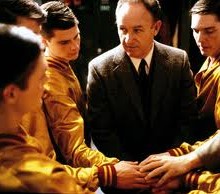How to Build an Amazing Culture for Startup Success
By Rob Kornblum | Culture

As a founder, should you hire an incredibly talented “rock star” or a great person who you know you can work with? Culture may be the single most important thing that founders create in a startup. As a company develops, its product, market, technology, business model may all change. A great startup culture encourages people persist in working together to solve customer problems.
Take some cues from successful CEOs and founders about how to build a positive culture.
Lesson 1: Culture is created by hiring
As the founder of a company, you might think you’re solely responsible for creating its culture. You do set the values. But your role in establishing the culture may be smaller than you think. It’s actually driven by the people you hire.
Eric Groves, now founder and CEO of startup Alignable, Inc. and former executive at Constant Contact, said: “Each person that you add does form the culture of the company, and you want to make sure that you’re adding people that are like-minded. You try and hire people that you don’t have to push up a hill. As a founder, you’re trying to hire really talented people and get out of their way.”
Tim Enwall, founder of multiple companies including Revolv (recently acquired by Nest), said:
“The culture we’re looking for is incredible team players, which means very low ego, very focused, able to get things done,  they don’t blame other people. Incredible team players are very passionate about our mission [and they are] emotionally mature enough to be candid with each other. While founders should articulate company values, those values get embodied and reinforced every day by the people you bring into the company. The best founders understand this, and they make cultural fit a critical part of their hiring process.”
they don’t blame other people. Incredible team players are very passionate about our mission [and they are] emotionally mature enough to be candid with each other. While founders should articulate company values, those values get embodied and reinforced every day by the people you bring into the company. The best founders understand this, and they make cultural fit a critical part of their hiring process.”
Lesson 2: Culture is about behavior, not policies or perks
First-time founders might think they need to provide meals, such as Google does for its employees, or unlimited vacation like, as Netflix does. But startups succeed when small teams perform at exceptionally high levels. This happens when people work well together, in an environment that frees them from the normal BS.
David Mandell, founder and CEO of PivotDesk, may have put it best: “A lot of people think culture is based on foosball tables and catered lunches and that’s all bullshit. What you need is an organization that enjoys working together, because that’s when they work best together.”
The employees see the way that founders and other key employees act, and they see what gets rewarded. Building an enduring culture is more about the actions than about the CEO telling everyone what the culture is.
Tim Enwall takes time with the entire company to promote honesty and trust: “I run a series of exercises with everybody in the company devoted to having them be candid with each other, having them be vulnerable and open and honest because that, I believe, is the essence of trust. Trust is the essence of organizational health.”
No matter what the founders of a company say the culture is like, or what perks company offers (such as free lunches or on-site dry cleaning), the culture of a company is embodied by how people treat each other. The embodiment is seen in the day-to-day interactions of employees, and it could be in compensation, promotions and rewards.
Lesson 3: Culture is about rewarding the right behaviors, and weeding out the wrong ones
Many high-growth companies face a common and classic dilemma. Companies are often driven by superstars, people whose creativity and work output is multiples better than other employees. In other words, the top performers can be three to five times more productive than average, not just 20 percent more.
However, superstars like this can often be difficult to work with. So what does the founder do if someone like this produces amazing work but is way outside the cultural boundaries and if they act disrespectfully or worse to other employees? Does the company fire them for being a poor fit? Or on the opposite end, does the company give them a bonus for their great contribution?
David Mandell, on respect: “I think the single most important attribute that I look for in employees… is respect. And respect for everyone in the organization. Being a senior person does not in any way give you the right to be disrespectful to a junior person The second that people don’t show respect for others, or people don’t deserve respect from others, we have to make changes.”
The choices you make will be well-known by the rank and file in your company, therefore helping to establish and solidify the culture.
Lesson 4: Culture is not about how many hours you work
Startups are known for pushing people exceptionally hard, driven by “crazy” founders who work 24/7 and sleep under their desks. Okay, that may be a slight exaggeration, but early Facebook employees were invited to bring their children to the office to kiss them goodnight, in the office, so that the employee could get back to work.
Founders and early employees have some good reasons to work their butts off – startups are like being in a race. You feel like you’re racing to produce products, revenue, and customers before you run out of money.
But many more experienced founders have discovered a different way. As they have become more mature, these founders have realized that the passion and intensity needed to succeed does not have to mean working all the time. In fact, founders with families find that their efficiency at work goes up when they make time for family, friends and personal activities.
Lew Cirne was in his late 30s when he founded software company New Relic, his second startup. He had recently had kids, and he made it a point to develop a culture that was about productivity, not about hours: “When I started the company, the kind of ground rules I had was we’re going to look for a more experienced employee base, capable of doing more in a shorter period of time, and less likely to burn out. The other thing I thoughtfully put into the culture is I make a habit of leaving the office at 5:00 every night because one of the important things to me is dinner with the family, and I like to cook the dinner, and it is just a routine I have. Certainly I want it not to be ‘Oh Lew the founder gets away with it,’ so it’s a pretty quiet office between 5:00 and 5:30 at New Relic compared to most other high-growth companies.”
It may sound counter-intuitive, but startup life is a bit like athletic training. Athletes simply cannot train at their highest intensity for long periods of time. Their bodies need rest and fuel to produce gains, and your employees are no different.
Lesson 5: Culture can be designed around the founders
One of the reasons for starting a company is to build a culture that you want to work in, one that reflects your values.
Art Papas, founder and CEO of SaaS provider Bullhorn Inc., has developed a strong company culture that reflects himself: “We spend a lot of time thinking about and writing down the values that we want at Bullhorn. We use them in hiring, in reviews and in daily practice. I interview every candidate and I grade them all against each of our values on a scale of 1 to 5.”
Art and his team have done two additional things that truly drive the culture home. In addition to naming the values, Bullhorn has a list of positive and negative examples of those values in practice.
He elaborated: “For example, energy is one of our stated values at Bullhorn. We give employees and managers three descriptions of energy:
• Leave people positively charged;
• Accept critical feedback with an open mind; and
• We gave one example of the opposite: talk behind people’s back and stir the pot
The reason these examples are so powerful is that the values are used in reviewing performance. Formal reviews are annual, but managers meet regularly with their staffs and review their performance against the values. These examples make it easy to guide people to the right cultural behaviors. Employees who aren’t a good fit with the cultural values are shown the door quickly.
If you’re just building your startup culture, take these lessons to heart. It’s not an accident that Peter Drucker once said, “Culture eats strategy for breakfast.” Building an enduring culture helps you create a company that can make it through the tough times and take rapid advantage of market opportunities. But more importantly, it will create your company, the one you dreamed about building.
Author note: The following post contains excerpts from five personal interviews I conducted with mid-life founders and CEOs. You can read the full interviews in my upcoming book Never Too Late to Startup.